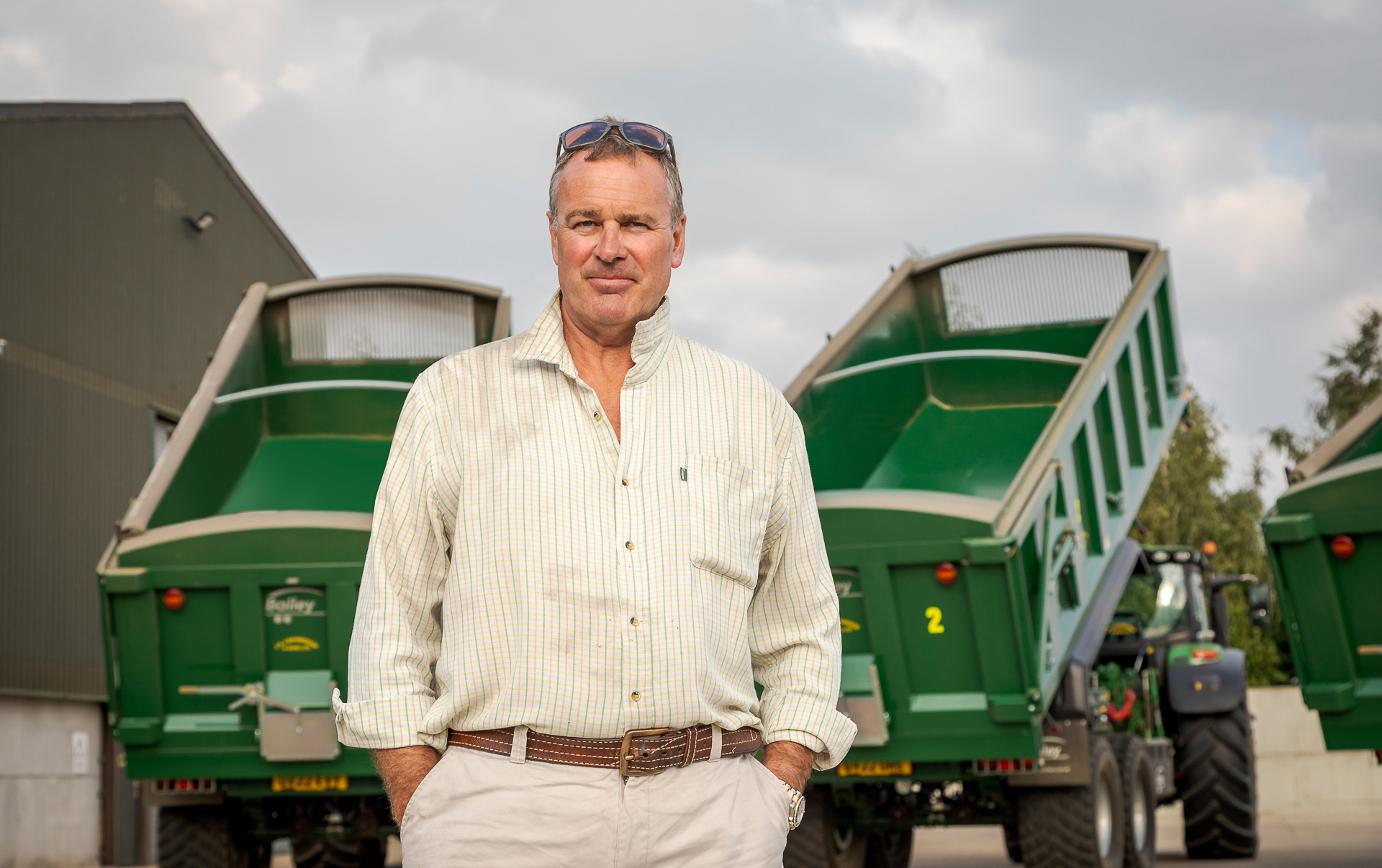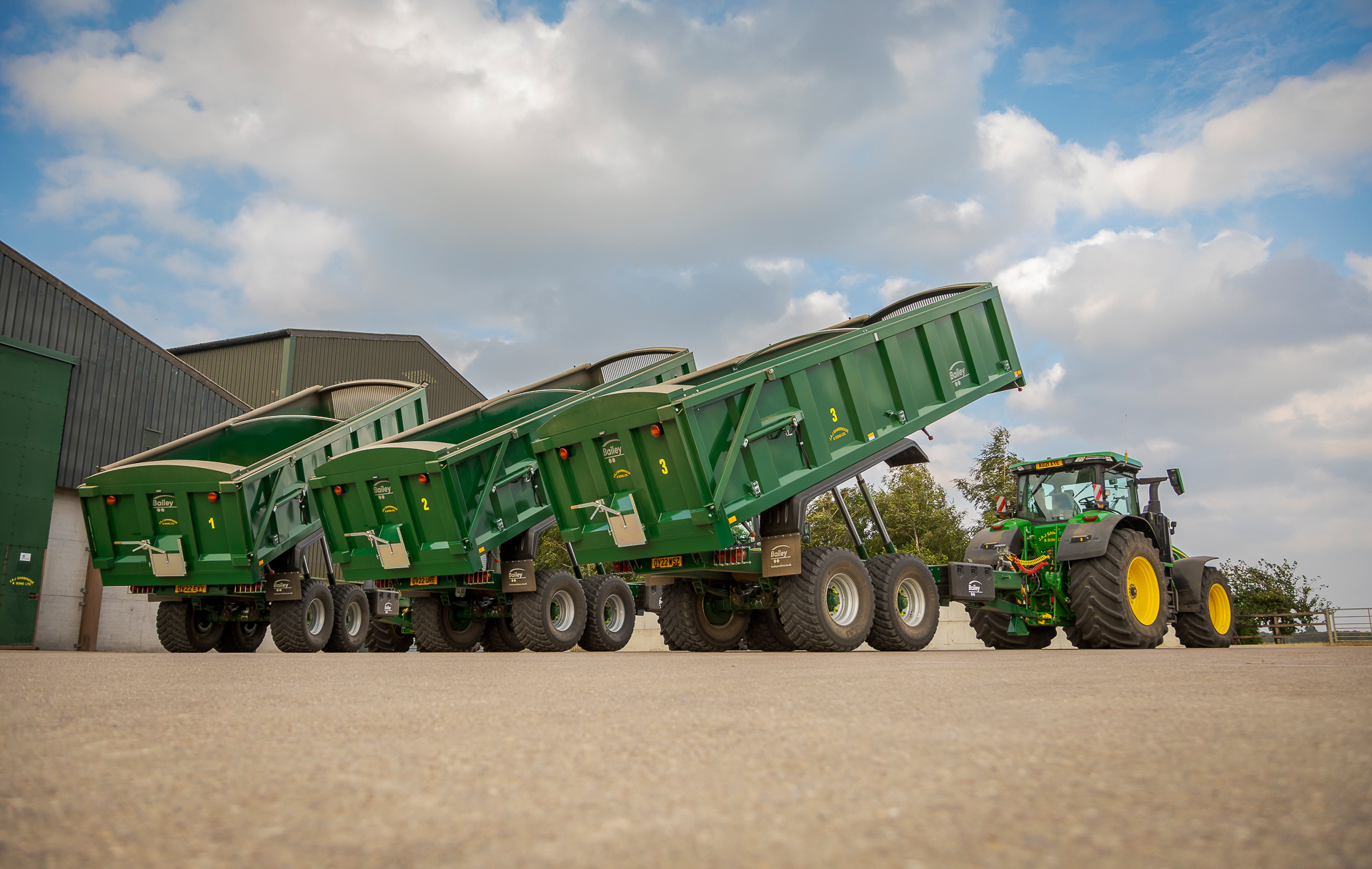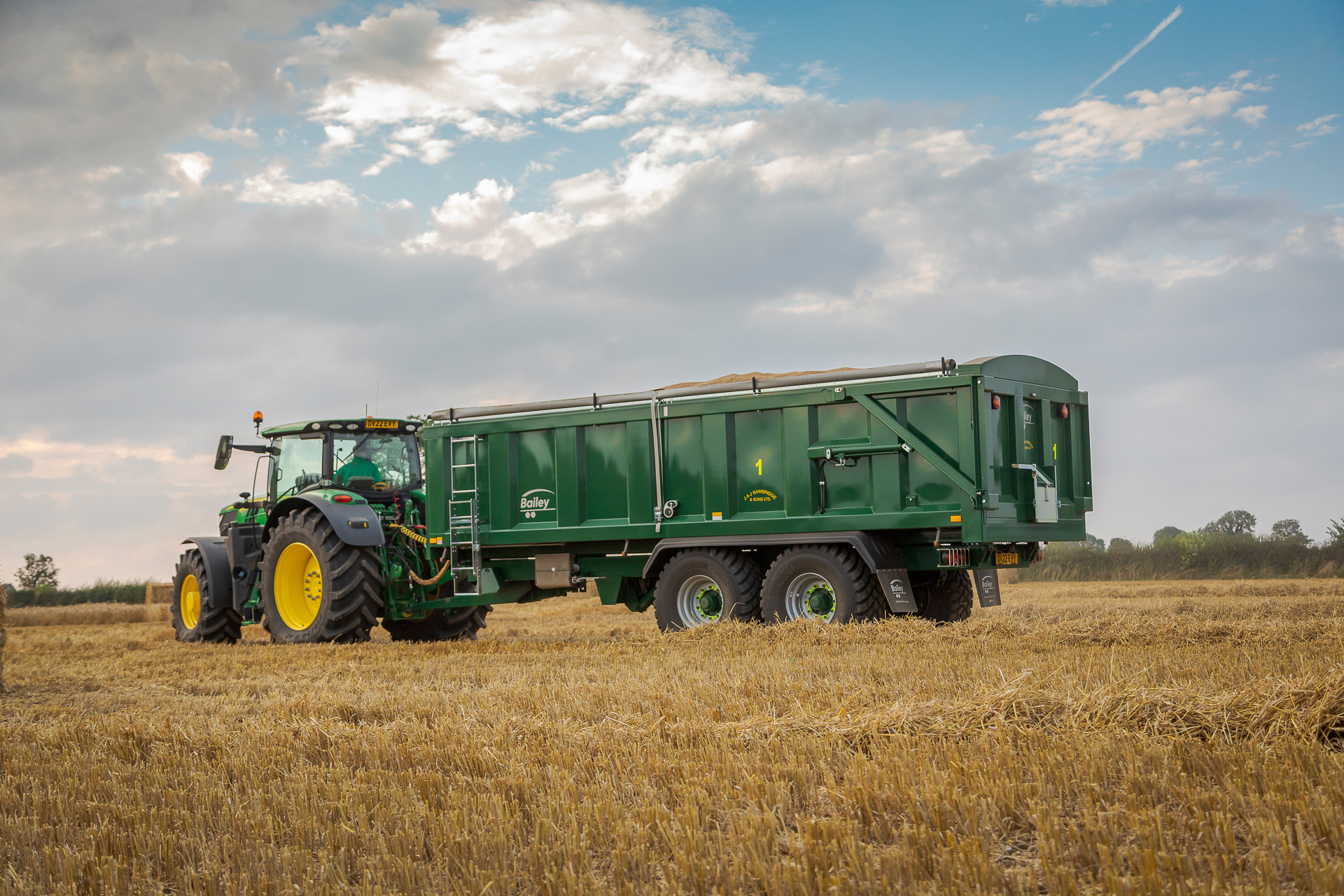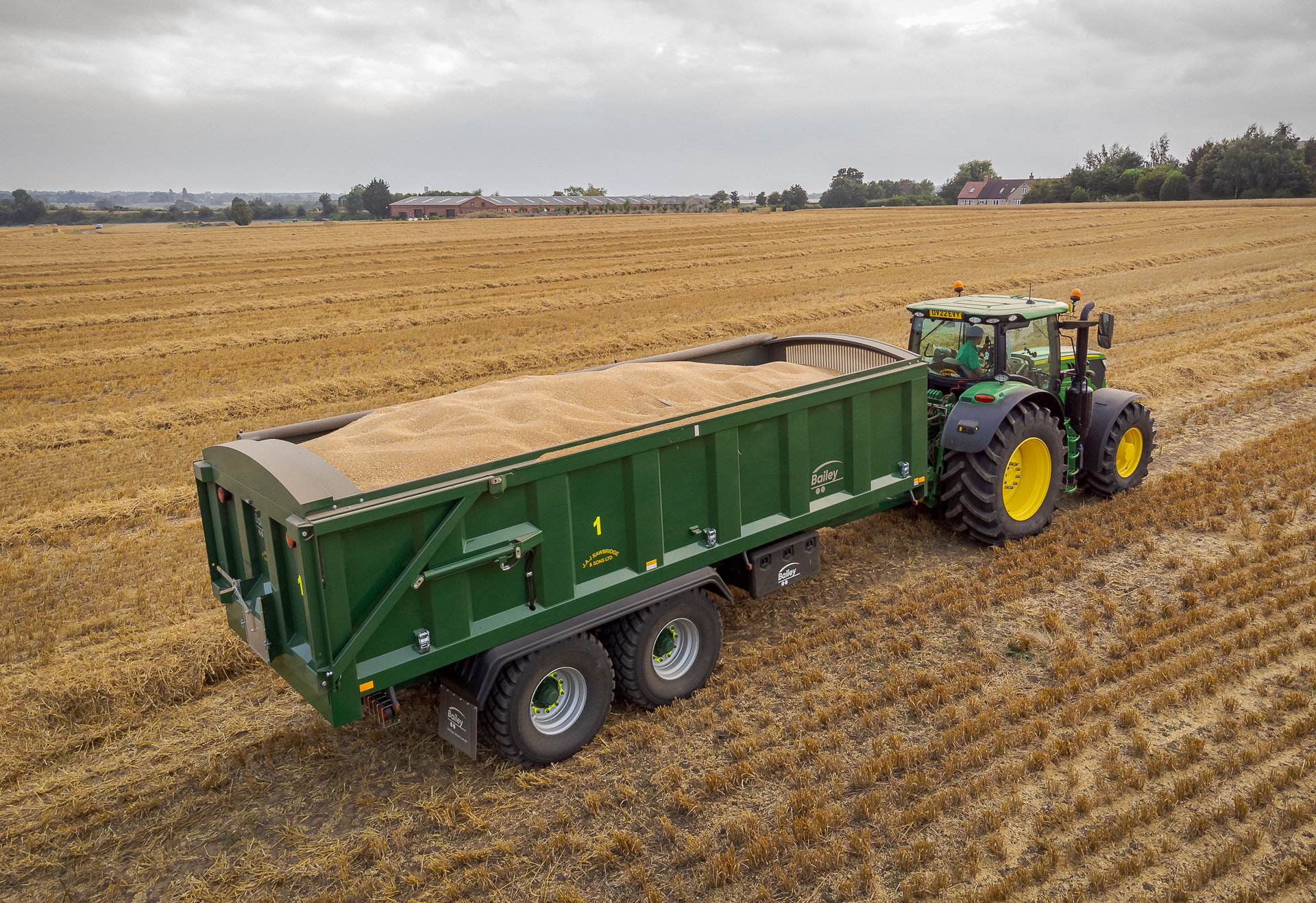
William Sawbridge & Sons Ltd are farmers and contractors located in North Buckinghamshire. The business predominantly grows 2,500 acres of milling wheat for commercial use, plus a mixture of flowers, pollen and nectar through an SFI Scheme. Additionally, in the region of 1,200 acres of contract farming is undertaken across Buckinghamshire and Northamptonshire.
The company has recently taken delivery of three new 18tonne TB trailers. At the end of a busy day in the combine, we caught up with William Sawbridge for his thoughts so far…
You’ve recently put three 18-ton TB trailers on the run, what was behind your decision?
We were running 3 trailers from another manufacturer up until earlier this year. During harvest last year we experienced a series of issues with tyre technology, which resulted in us having to buy 5 new tyres in a very short space of time. That’s a considerable amount of money. When we approached the manufacturer to resolve the issue, we were less than satisfied with their response.
We’ve run a Bailey flat trailer for a number of years and been very happy with it. I mentioned my dilemma to a farming acquaintance who relies on a fleet Bailey trailers. He had nothing but praise for the trailers and the back-up. I called Michael Bailey and arranged to visit the factory.
During my visit, I met Michael and many of the Bailey family, including Tom Bailey the founder. It was obvious they had invested in machines; I thought the factory was tip top. They work hard, from the paint sprayers to the guys that are producing the sheets of metal to build the trailer walls. They are my kind of people; it was an easy decision to make.

Did you specify any options, if so, which and why?
We chose rollover sheets; I believe that moving forwards this is a must. Grain socks on the back, when we dress our own seed we have to have a sock on the back. The rest is basically standard, everything that should be on a trailer is already on a Bailey.
What duties of the trailers being used to support?
They are supporting two combines to get all the wheat off the field and into the shed as quickly and safely as possible. We will also use them when we’re drilling. Because we’ve got the rollover sheets, we can put the pallets of seed in the trailer. This means we can haul the trailer down the field, at the end of the day deploy the sheet, which protects everything until the following day.
What do you look for in a trailer?
Stability, easy braking, it runs true to the road, no rocking and rolling.
How do you find the performance of the sprung drawbar in relation to the ride it gives in the tractor?
They run so true that the guys don’t even know the trailer is on the back. If you look at the tractors, they all sit on the drawbars dead level, all four wheels on the ground.

Is there any particular feature that has impressed you?
The trailer’s ability to stick to the road. Everything that Michael Bailey said they’d do, they’ve done, I’m extremely pleased. I only wish we’d made this decision a few years ago.
You also run a Bailey flat trailer, what are you using it for?
I think we bought it about eight to nine years ago. We’re liquid fertilizer based and we’ve put a 10,000 litre tank on it. On the road and in the field it’s stable and runs true.
Can you sum up what running Bailey trailers means to your business?
So far this season we’ve hauled about 4,000 tons of wheat with our Bailey trailers, there’s no wheat in the village. In previous years, almost every day, we were going round with the road brush and the load-all to brush and pick the wheat off the road.
The one thing about the farming industry is families deal with families. It’s about trust – being honest and having confidence in your products. My time with the Bailey family was enough to convince me that in the unlikely event something goes wrong, they’ve got my back. There’s a passion for farming at Bailey, you can’t put a price on that.





